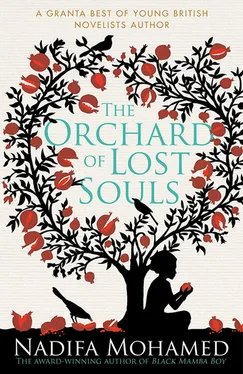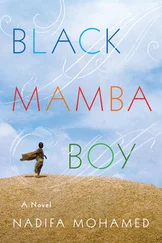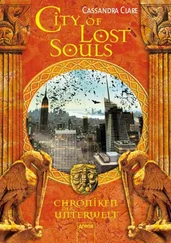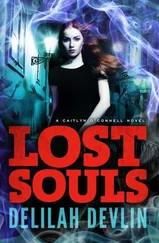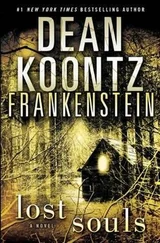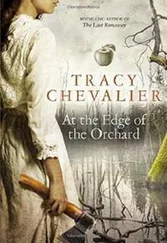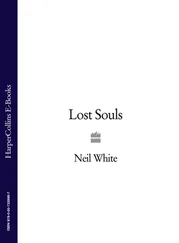Filsan pushes deeper into the wheelbarrow to keep it moving; the frail old woman seems to weigh a ton, and the force it takes to move her over the rough ground makes her arms twitch uncontrollably. Bolts of pain shoot up and down her spine and she endures it silently, seeing them as part of the restitution she has to make, a physical purification if not a spiritual one. The pain worsens, beginning at the soles of her feet and slicing up to the top of her skull. Panting, sweating, she drives Kawsar out of Guryo Samo and into the scrubby patch of land behind, an oasis of sand, acacias and discarded mechanical parts. The entire wheel slides into the deep, fine sand and it falls to Deqo to dig it out while Filsan catches her breath. It is another three or four miles before they reach any of the roads leading out from Hargeisa. If they are lucky they will make it before dawn. If not, they will certainly be discovered by the army. Deqo passes around a flask of water and then slings the empty vessel into the aloes.
Filsan’s thoughts return to her father, asleep in his empty house in Mogadishu; this is the longest break in communication they have ever had. She has ignored his calls for two weeks but constantly hears his voice in her head anyway, the restrained but contemptuous tone: ‘What do you know?’ and ‘Don’t be such an imbecile’ run around and around in her mind. She knows in her bones that she has turned irrevocably against him; hating how she curled and shrank in his presence. There is no way to wipe the blood from her now, but she can turn her back on that old life.
Filsan strains against the wheelbarrow, biting her lower lip, gathering the last of her strength like a whipped mule. Careering left and right, they make slow progress to the poor neighbourhood the other side of the oasis. Here the stick and cloth houses have burnt to ash — finding nothing to loot, the advance party of soldiers have smashed, torn and incinerated every last thing the blacksmiths, latrine cleaners and shoemakers left behind. Five-shilling whodead flip-flops smoulder in the ruins.
Filsan trips over the debris and puts a hand on Kawsar’s shoulder to steady her feet. Kawsar responds with an accusatory look as if she holds Filsan personally responsible for what she sees.
Deqo walks a few feet ahead, scouting the horizon, looking back every few seconds to check they are still with her.
‘Don’t go that way, there are only wild animals that way. We need to go uphill to get to the main road,’ Kawsar calls out.
Filsan pushes the wheelbarrow to the crest of the hill and, when Kawsar is safely level, collapses onto her back. They have walked all night and now the diaphanous blue sky spins in dizzying circles over her. Deqo pours water into her mouth but it chokes her. She pushes the flask away and closes her eyes.
‘Come on, the road is in sight,’ Kawsar orders.
‘I can’t. .’
‘It’s already light, we can’t just sit here.’
Filsan doesn’t reply but covers her eyes, trying to im agine her companions and the situation away.
Deqo, tireless, jumps impatiently on the spot. ‘I am going to check the road,’ she shouts.
‘Keep your voice down,’ Kawsar hisses after her.
In the ten minutes that Deqo is away, Filsan falls asleep. The girl returns and shakes her roughly awake. Stretching her weeping, blistered hands over the wheelbarrow handles, she follows groggily as Deqo jogs and points to something ahead.
Fifty feet away a white lorry comes into sight, the open bed of it crammed with refugees and crates of qat. It pulls over with the engine running as a man chewing a matchstick approaches them. The qat smuggler is around thirty years old with a deep scar on his cheek and uncombed, clumpy hair.
‘Half a million shillings to take you all to the Ethiopian border.’
Kawsar unlocks the chest in her arms and rifles through it. Add to it the gold earrings she is wearing, and it might be enough.
Filsan stands impotently behind as Kawsar removes her earrings and passes everything to the smuggler.
He puts the matchstick behind his ear and re-counts the haul, showing off his green and gold teeth, then he grunts assent and takes the wheelbarrow from Filsan, running with Kawsar as if she is weightless before lifting her onto the flatbed. The morose passengers shift a little but offer no help as she yells in pain. Deqo jumps on beside her and then Filsan crawls aboard just as the lorry speeds away.
The smugglers drive as fast as their forty-year-old vehicle can take them, dodging all of the checkpoints by driving off-road, the qat dealers comfortable in their cab while the refugees are thrown about, cracking teeth on the metal railings, hitting noses against skulls, bruising ribs on the qat crates. A pregnant woman opposite Deqo sits weeping as blood pours from between her legs. They cross the Haud desert and enter a slice of the Ethiopian wilderness within two hours; the refugees are ordered to disembark at this barren place, Harta Sheikh, while the truck continues to Dire Dawa. The smugglers deposit Kawsar under a tree.
‘Just over there, the camp is just over there,’ the gold-toothed man bawls, pointing into the distance.
Filsan stays with Kawsar. Following the other refugees, Deqo walks for half an hour before stopping dead. One side of the horizon to the other is covered in buuls, clutched so low to the ground that they seem to be sand dunes rippling in the desert heat. Saba’ad could be dropped five times into the expanse. It takes her an hour to reach the camp. It is full of men in suits, women in dusty floral dirics and children wailing and scratching at the lice in their hair. Some of the men carry blue UN tarpaulin in their hands, but most of the structures are cobbled together from cloth and sticks, some expertly built by people who had once been nomads, others barely holding together. The camp is too new to have any water standpipes, clinics or latrines, and there is still vegetation — aloes, euphorbias, acacias — for people to raid for firewood and construction. A queue forms beside the only official tent, a massive structure with the UN crest on it, and Deqo joins the line, falling quickly back into the inquisitive, impatient stance she had in Saba’ad.
Eventually she is inside and beckoned forward by an Ethiopian woman with a tattooed cross on her forehead. A white ledger covers the wooden desk and her eyebrows furrow behind her glasses, ‘Name?’ She speaks Somali with a lisp.
‘Deqo.’
‘Age?’
‘Around ten?’
‘Are you alone?’
‘No.’
‘Who did you come with?’
Deqo pauses for a second to explain the situation, but then tells the lie her heart wants to tell. ‘My mother and grandmother.’
‘Where are they?’
‘Outside the camp, they need help, my grandmother can’t walk.’
‘We’ll get someone to assist you.’ She waves Deqo to the side and then a young Somali man with a wide smile and a red t-shirt with English writing on it approaches.
He places a hand gently on her shoulder and leads her out of the tent. He collects a wheelchair and she guides him to where Filsan and Kawsar wait. She is back in her familiar world; the war and all that time in Hargeisa just a complicated trial to achieve what she has always wanted: a family, however makeshift.
Firstly, I would like to thank my mother, Zahra Farah Kahin, from whose stories this book emanated, and my father, Jama Guure Mohamed, for his unwavering support. Dahabo Mire, Nadifo Cilmi Qassim, Fadumo Mohamed, Ayan Mahamoud, Jama Muuse Jama, Dr. Adan Abokor, Dr. Aden Ismail, Edna Adan, Fadumo Warsame, Assey Hassan, Ahmed Ibrahim Awale, Siciid Jamac, Hodan Mohamed, Amran Ali and Ikraam Jama have inspired and encouraged me to carry on with this book even when it was proving too difficult. Thank you to the Authors’ Foundation and to Robert Elliott, Scott Brown and to all my colleagues, friends and family for their patience. Clare Hey, Courtney Hodell, Ben Mason — mahadsanid.
Читать дальше
